Guest article written by Dominic Petronzi
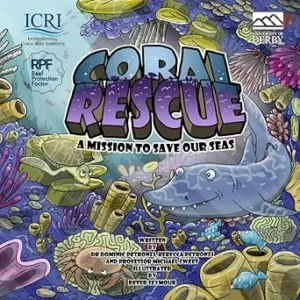 At a time when our planet faces environmental challenges of unprecedented scale, there is a growing urgency to engage people of all ages in conservation efforts – especially children. Despite the rise in technology use, one of the most powerful tools we can use to nurture awareness and positive action from an early age is the humble storybook.
At a time when our planet faces environmental challenges of unprecedented scale, there is a growing urgency to engage people of all ages in conservation efforts – especially children. Despite the rise in technology use, one of the most powerful tools we can use to nurture awareness and positive action from an early age is the humble storybook.
The latest storybook – developed through a collaboration between scientists and educators – has been created specifically to promote coral reef conservation. Drawing on expertise in this area and educational experience, the book is part of a wider aim and project at the University of Derby (The Endeavour Project): to offer children, their families, and communities a fun and accessible way to learn about important topics and issues, and in this case, the value of coral reefs and the urgent need to protect them.
Why Coral Reefs Matter
Although tropical coral reefs cover only a tiny fraction of our planet’s surface, they are home to between 25% and 40% of all marine species. Often called the ‘rainforests of the sea’, coral reefs provide critical benefits: they protect coastlines from erosion, support complex marine food webs, and sustain millions of people around the world through fishing and tourism.
Despite their importance, coral reefs are in crisis. Climate change remains the most significant threat, causing widespread coral bleaching and degradation. However, reefs also suffer from local pressures including overfishing, pollution, and damaging coastal development. These stressors combine to create immense strain on reef ecosystems, and we do not have the luxury of time!
The impacts of these changes are not limited to marine life. Coral reef decline poses direct threats to human well-being. As such, protecting and restoring reefs should not be seen as an altruistic or optional effort; it is a pragmatic and necessary step towards safeguarding the future of both human and natural systems.
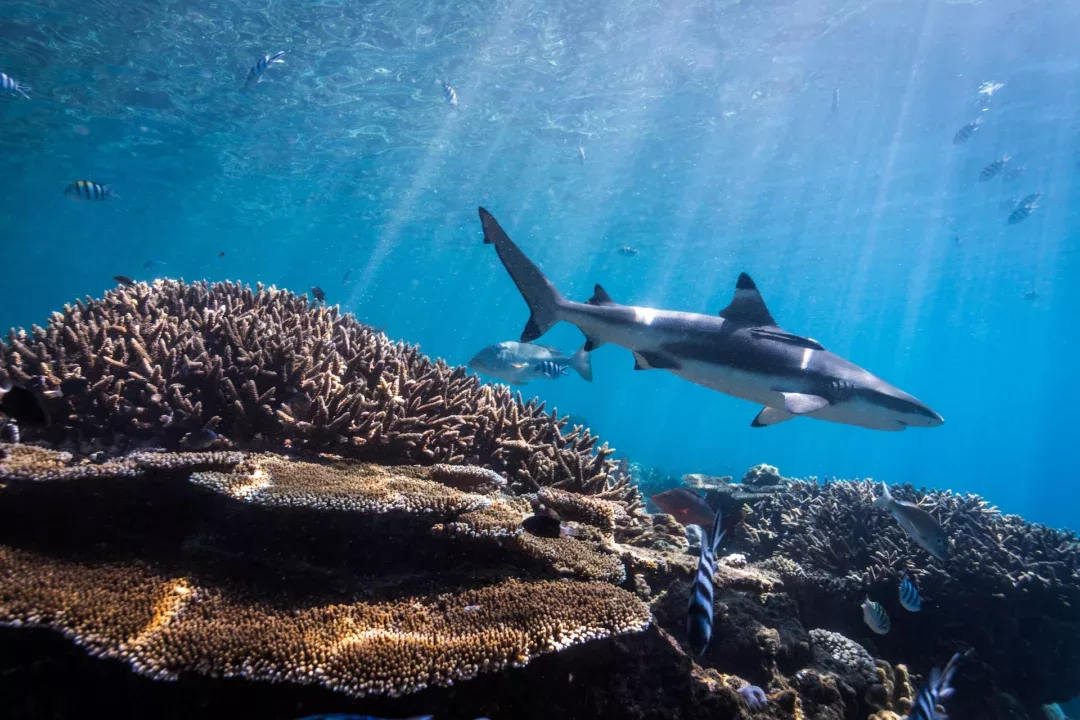
A Creative Response to a Global Challenge
We believe that everyone has a role to play in protecting coral reefs. However, action starts with awareness, and awareness starts with education. For children especially, scientific information must be communicated in a fun, imaginative, and developmentally appropriate format, and we have advocated this for several years, giving rise to our wider Endeavour Project of research-informed storybooks and resources.
And that’s where storybooks come in.
Through this project, we have explored how storybooks, informed by evidence, theory and expertise (both within our institution and external stakeholders) can support children’s learning and social-emotional development. Indeed, well-designed storybooks can provide children with the tools they need to explore complex or difficult topics in a safe and engaging format (particularly with the integration of fun facts and finding character activities within the book!).
Storybooks help children to make sense of their world, build emotional literacy, and develop empathy. They can also empower young readers to see themselves as capable of making a difference, and this is something particularly important in discussions around environmental challenges.
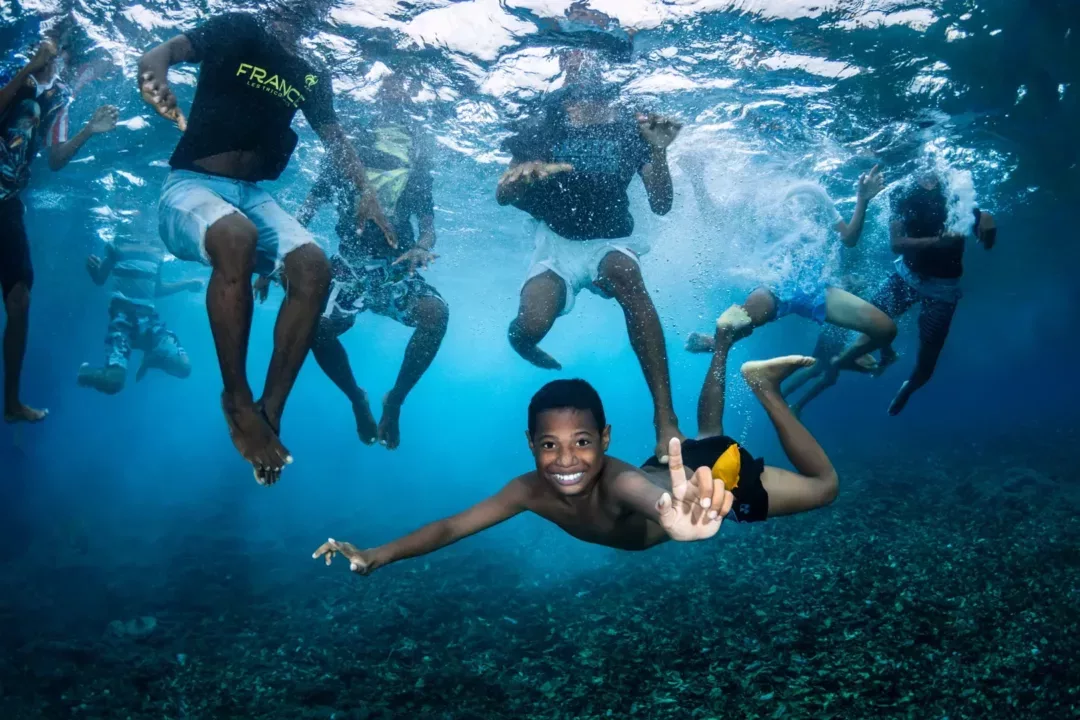
The Coral Reef Conservation Storybook
The new coral reef conservation storybook builds on this foundation CORAL RESCUE – A mission to save our seas : Sweet, Prof Michael, Petronzi, Dr Dominic, Petronzi, Rebecca, Seymour, Peter: Amazon.co.uk: Books. Designed with both scientific accuracy (based on the internationally recognised work of Professor Michael Sweet) and child-friendly storytelling in mind, the book brings to life the beauty and fragility of coral ecosystems. Through showcasing the beauty of corals and the array of life within them, to an uninhabited and barren world because of human impact, it communicates key facts about coral reefs and the threats they face, from climate change to pollution.
One message we highlight is how our everyday behaviours can have far-reaching environmental impacts. For example, around 80% of plastic pollution in the oceans comes from rivers. What happens to the plastic bottle we discard, or the packaging we throw away, can ultimately affect life under the sea.
Even the sunscreen we use can contribute to reef damage, depending on its chemical composition. These examples are woven into the story in accessible, non-judgemental ways, helping young readers and their families make the connection between personal choices and global impacts. Speaking from a psychological background, we refer to this as behaviour change, and small changes can ultimately lead to positive impact.
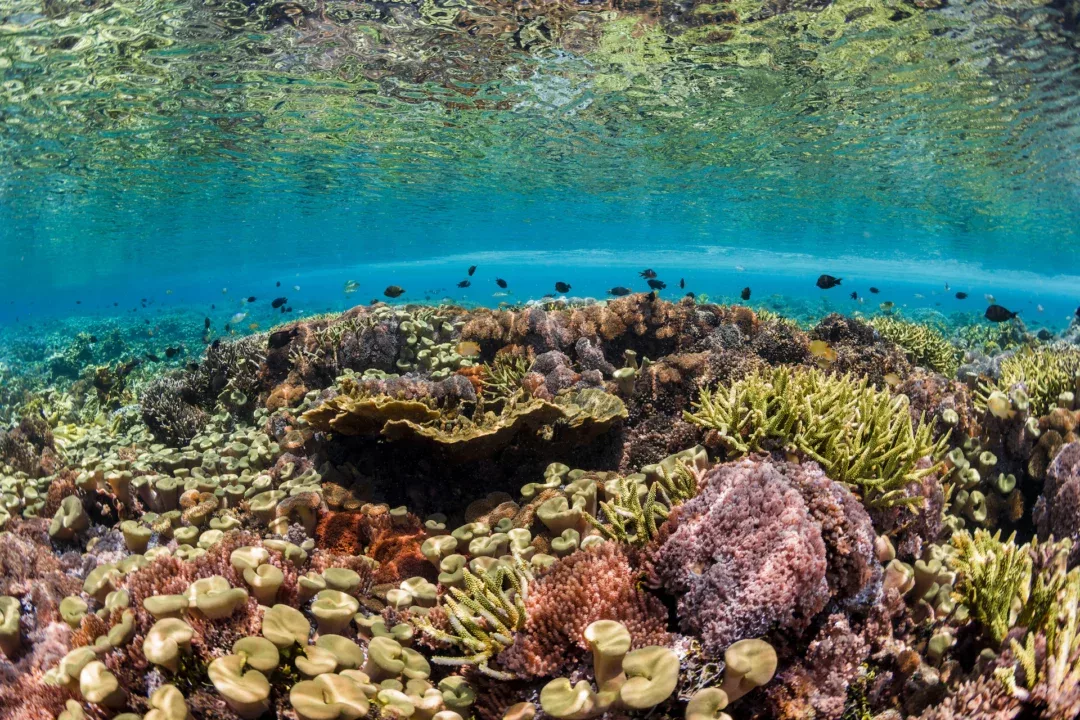
Building Awareness, Building Hope
One of the most powerful aspects of storybooks beyond education, is their ability to inspire. By introducing children to the wonders of the ocean and the urgency of its protection, the storybook aims to spark a lifelong love of nature and a sense of environmental responsibility.
We do not want children to feel overwhelmed or hopeless. Indeed, the storybook draws on the hope of the incredible research taking place at the advanced aquatic research facility at the University of Derby. The storybook promotes small, achievable actions and the idea that everyone, no matter their age, can be part of the solution. By fostering a sense of connection and urgency, the story encourages readers to take positive steps in their own lives.
Although designed with children in mind, this storybook is a resource for anyone interested in coral reef conservation. It can be used in classrooms, at home, in environmental workshops, or as part of broader outreach campaigns – we will certainly be using this as part of our university outreach activities! It is a creative tool that complements traditional scientific communication by offering an accessible and emotionally engaging route into complex issues.
More broadly, it is a call to action. Coral reefs are irreplaceable ecosystems, and their protection requires urgent global cooperation and local stewardship. By investing in educational resources that speak to hearts as well as minds, we can help build a generation that understands, values, and fights for the natural world.
By reaching children early through stories that inform and inspire, we can lay the groundwork for meaningful, lasting change.
About the Authors
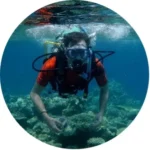 Professor Michael Sweet
Professor Michael Sweet
Professor Michael Sweet is a world-renowned scientist. He has published hundreds of scientific papers on coral ecology and even helped establish charities and businesses, all aimed at understanding and preserving marine ecosystems. He is extremely passionate about education, across all ages. From his students at the university of Derby to those in their home hopefully reading this book. When he has a little bit of spare time he consults for the likes of the United Nations, and the International Union for the Conservation of Nature – trying to Influence policy and change the way humans behave. He believes we must all work together if we want to preserve our planet for generations to come (LinkedIn: (46) Michael J Sweet | LinkedIn)
 Dr Dominic Petronzi
Dr Dominic Petronzi
Dominic is a senior lecturer in psychology at the University of Derby, specialising in maths anxiety research, particularly its impact on educational experiences and strategies to reduce it through emotion regulation. Dominic also leads a project developing research-informed children’s storybooks in collaboration with experts and organisations to address complex issues in an accessible format for children and caregivers (LinkedIn: Dominic Petronzi).
 Rebecca Petronzi:
Rebecca Petronzi:
Rebecca is the English Subject Lead and Senior Lecturer in ITT/E at the University of Derby, specialising in teaching early reading and curriculum leadership. Rebecca completed a BA (Hons) in English at the University of Derby- solidifying her passion for literary pursuits, before training to become a primary teacher to inspire the next generation of budding authors. Rebecca’s research areas explore blended pedagogies and the theory-praxis gap. Rebecca is also the co-author of a series of research informed storybooks and supports research projects using storybooks as an approach to support a range of issues including maths anxiety, disordered eating and nature connection. Rebecca is currently training as a Bell Foundation Lead Practitioner and looks forward to developing the storybooks further through the translanguaging project (X: R_Petronzi_UoD).
 Pete Seymour
Pete Seymour
Peter is the illustrator that brings our stores to life! Peter grew up in York and used to draw his favourite characters from the Beano and Dandy comics. He enjoyed creating his own comics and this has helped him to become the very talented illustrator that he is today. At college, Peter discovered a real joy for painting things like hats and apples. In fact, he enjoyed this so much, he decided to progress with this at university. Peter is a University of Derby alumni from where he received a BA (Hons) in Fine Arts (LinkedIn: Peter Seymour).

